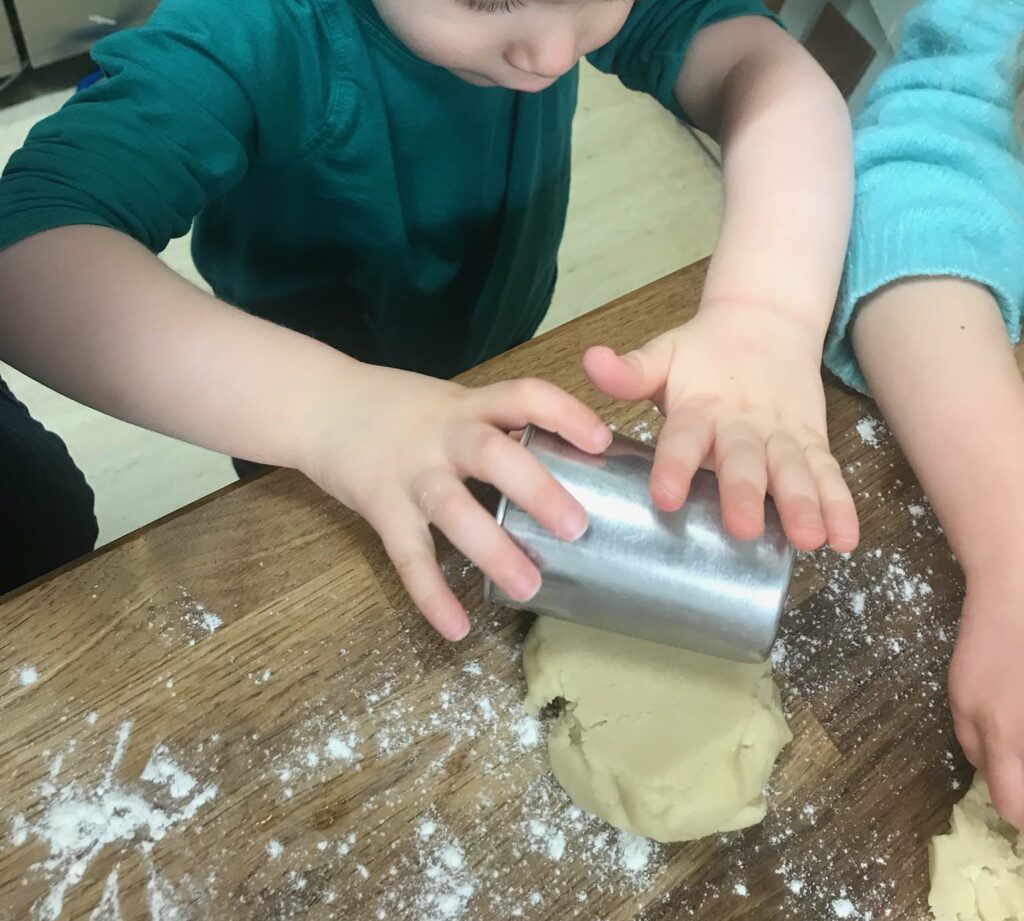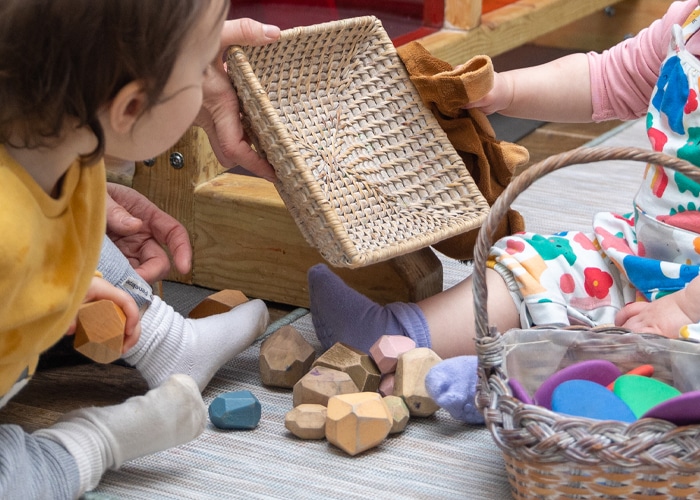

The economic strand of our curriculum is broken down into three sections:
How does this look in practice……….
Thinking in a sustainable way often calls for creativity and problem solving. These are skills which need developing. At Young Friends we know that deep learning happens when the child is fully engaged and interested in the task at hand. A child-led environment is perfect to observe interests and areas needing support. We work closely with the children to extend their activities in the moment, enhancing and building upon children’s existing knowledge.
This child-responsive planning can be broken down into three stages:
Mathematical concepts and processes are an everyday occurrence and our staff team are brilliant at turning these opportunities into teachable moments. Whether it be counting the children during a register check, fetching and passing plates out, finding naturally occurring patterns, using positional language or measuring and weighing during cooking activities.
Cooking is a very important element of our Young Friends day.
With food inflation reaching a high of 19%, as sustainable citizens we need to model a respect for food and food waste. Because of this, we do not use food stuff in play. However, we cook with the children every day. This enables the children to have the same rich experience received from play, but with a more sustainable and authentic outcome. By cooking together with raw ingredients, we introduce a fun, social element, which is not only a great way to introduce mathematical concepts but can also break down a lot of stigma and anxiety surrounding food, affording an understanding and control over what is being produced, and hopefully eaten!
We encourage an understanding of the value of money and the processes needed to acquire things such as food, resources, shelter, clothes etc. Also an awareness of people in our community and those who may need help. We adopt a charity each year and raise money by making things to sell e.g. candles, soaps etc. and going on sponsored walks.


Symbolic play is the ability of children to use objects, actions, or ideas to represent other objects, actions, or ideas. It encourages the development of social skills, academic abilities, early literacy concepts, and self-regulation.
You may have seen your child engaging in pretend play when they use objects to represent something else like driving a car by moving a pretend steering wheel or using a block of wood as a cell phone. Drinking from an empty cup or pretending to feed a doll are also examples of symbolic play.
Children often include their social norms in pretend play, as a tool to make sense of concepts. As their role-plays and imagination become more sophisticated, socialization becomes an important part of their play.
Symbolic Play helps children to move away from their egocentric thinking. They will learn skills in negotiation, cooperation, listening, sharing, taking turns, and respecting others’ feelings, thoughts, ideas, and physical space. It also helps with sequencing and ordering skills which are a prerequisite for early maths and literacy.
Children will also be developing their cognitive skills. New neural pathways are created whenever a child learns how to think creatively, enabling them to become effective problem solvers.
To enable effective development of symbolic play, our environment is rich with loose parts (no traditional ‘toys’ here!). Loose parts are an integral aid to symbolic play.
Loose parts are not toys in the traditional sense of the word, they are a collection of ‘things’ that can be moved, merged, collected, shared, taken apart, stacked, stored, built up, lined up and any other type of play that you can think of and as such, they’re a fantastic resource to support imagination, collaboration, and schemas in young children’s play! The list is endless as to what loose parts are. In our nursery we have…….
We know there are so many benefits to providing open ended loose part resources. They provide children with an enabling environment full of interesting objects that support creativity and invention. Infinite variables ensure constant interest from children and the ability to move, modify or mould materials to meet individual requirements means resources are adaptable to all ages and stages of development. Similarly, it’s impossible to use a loose part in the ‘wrong’ way so there is no sense of failure for children. In fact, children can gain a huge sense of personal achievement for reaching the goals of their play, plus experience the thrill and achievement of discovery and experimentation. Plus, loose parts are not gendered and have no stereotypes.
Loose parts are also great for the environment!
Young Friends Kindergarten
89 Holland Road
Hove
East Sussex
BN3 1JP
t: 01273 735 100
e: enquiries@youngfriends.co.uk